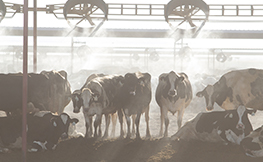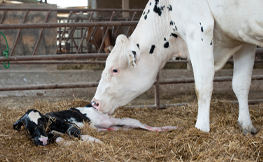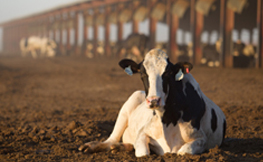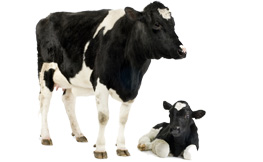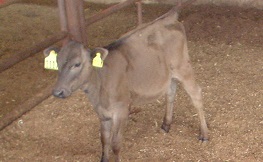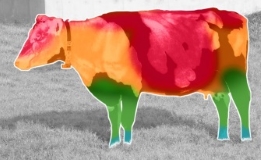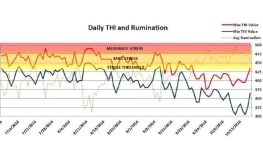By J. Laporta, F.C. Ferreira, V. Ouellet, B. Dado-Senn, A.K. Almeida, A. De Vries, G.E. Dahl
Late-gestation heat stress exerts carryover effects on at least two generations. This quantifies the need for providing heat abatement to dry-pregnant dams to rescue milk loss and to prevent losses in their progeny.
Read
By V. Ouellet, J. Laporta, G.E. Dahl
Heat stress during the dry period has dramatic negative impacts on the cow and her offspring. Cows that experience heat stress in late gestation make less milk and are at greater risk of disease and nutritional issues.
Read
By Thiago F. Fabris, Jimena Laporta, Amy L. Skibiel, Fabiana N. Corra, Bethany D. Senn, Stephanie E. Wohlgemuth, Geoffrey E. Dahl
This study from the University of Florida, Gainesville, found that cooling for the entire dry period increased milk yield up to 30 weeks into lactation. It showed that heat stress at any time during the dry period compromises performance of cows after calving.
Read
By Amy L. Skibiel, Bethany Dado-Senn, Thiago F. Fabris, Geoffrey E. Dahl, Jimena Laporta
Milk yield is significantly lower in first-lactation heifers that experienced fetal heat stress. This study examines how the development of mammary glands are affected by heat stress during gestation.
Read
By Hisashi Nabenishi Atusi Yamazaki
This study evaluated the relationship between the temperature–humidity index (THI), health and growth performance of Japanese black calves, by reviewing health data collected from nearly 20,000 calves and 60,000 markets weights.
Read
By S. Ammer, C. Lambertz, M. Gauly
This study confirms that, even in moderate climates, dairy cows are exposed to heat stress.
Read
By Mathew M. Haan, Penn State Extension
Heat stress study at farm-level clearly shows the impact of heat stress on rumination and on milk production.
Read
